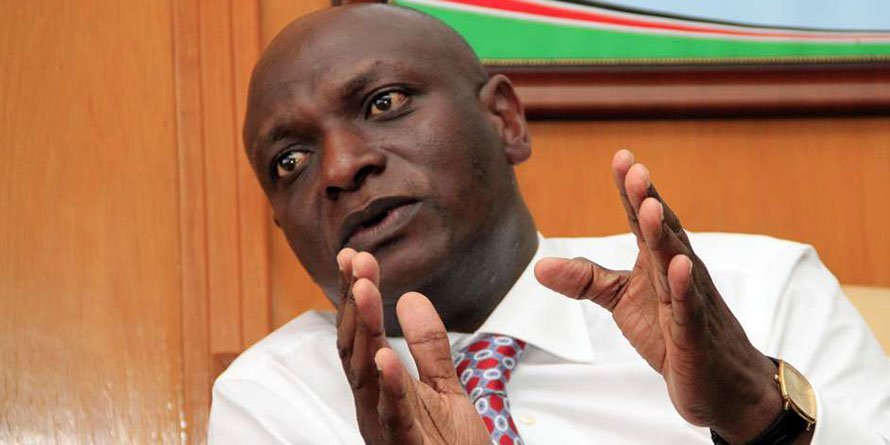Energy Cabinet Secretary Charles Keter. FILE PHOTO | NMG Five non-executive directors of Kenya Power representing half of the board on Monday resigned without the electricity distributor announcing their replacement.
The Nairobi Securities Exchange-listed firm said Adil Khawaja, Kairo Thuo, Wilson Kimutai Mugung’ei, Brenda Kokoi and Zipporah Kering had resigned as independent directors.
The company did not give reasons for their departures that left the board consisting of the CEO Bernard Ngugi and civil servants including National Treasury Cabinet Secretary Ukur Yatani.
Energy Cabinet Secretary Charles Keter termed the changes as normal, saying it was a continuation of the reorganisation that started in the management ranks.
“It is just a change in the board. As you may have noticed, there has been reorganisation which has been happening at Kenya power and we had a new team at the management. It is just part of that reorganisation and nothing more than that,” he said.
The changes come at a time when Kenya Power, a monopoly, continues to post weaker earnings. It has issued its third profit warning in a row, citing reduced electricity consumption due to coronavirus control measures and rising cost of buying wholesale power from companies like KenGen.
The alert means its net earnings for the year ended June 2020 will decline by at least 25 percent compared to the previous year’s profit of Sh262 million —which was also its lowest in 16 years.
“The Covid-19 pandemic has adversely affected our business operation leading to a slow growth in electricity sales and an increase in financing costs resulting in reduced earnings,” Kenya Power said in the profit warning notice.
“Based on a review of the company’s financial performance, the board of directors has determined that the earnings for the financial year ended June 30, 2020 are projected to be lower than the earnings for the previous year.”
Kenya Power had made an application to the Energy and Petroleum Regulatory Authority seeking an increase in electricity prices by up to a fifth, saying it is key to reversing its declining profitability.
But the State has frozen the review, which combined with the flat sales look set to hurt the firm’s profits.
